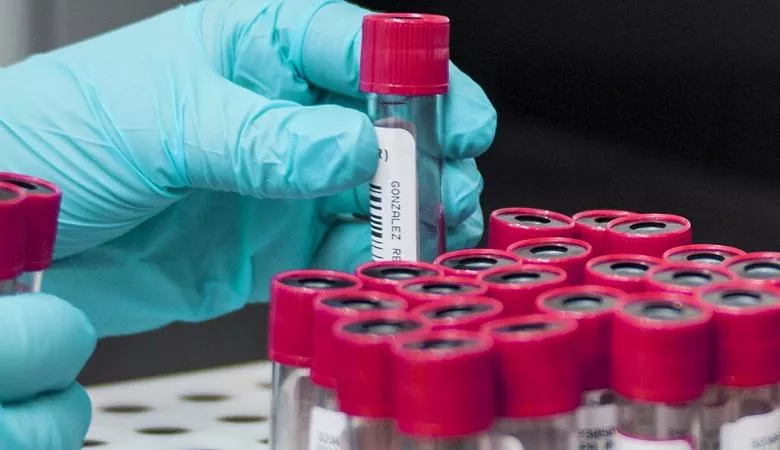Immunology & Microbial Sciences
Research and Impact at the School of Immunology & Microbial Sciences

The School of Immunology & Microbial Sciences lead research, education and training at King's in the related areas of Immunology, Inflammation and Infectious Diseases – with the collective goal of improving human health and wellbeing.
Our research focuses on understanding the immune system, and how it functions in times of health and disease. Our clinical and discovery scientists collaborate widely to work on an inspiring breadth of subjects employing methodologies that span atomic level dissection of molecular and cell function, through to the development of innovative new therapies and clinical trials. This multi-disciplinary approach enables us to tackle cutting-edge questions in areas of biology and medicine such as asthma, allergy, cancer, diabetes, arthritis, inflammatory bowel disease, organ rejection, vaccination, and a range of bacterial and viral infections including HIV and Ebola virus.
Our School is deeply committed to educating the next generations of scientists, researchers and clinicians. High-quality teaching and training are delivered through a raft of research-inspired programmes for medical and biomedical science undergraduates, masters and PhD students, clinical trainees and post-doctoral fellows.
Our academic programmes of research-inspired teaching and clinical practice are embedded across our three departments:
Our mission is to deliver world-class research and education focusing on the immune system and how it functions during health and disease.
Our multidisciplinary research has applications in many areas of medicine, particularly in the fields of organ transplantation, oncology, diabetes, rheumatology, virology, immunology, hepatology, vaccines and many more.
From leading large European consortiums into the effect of the microbiome on chronic liver disease to facilitating local Public, Patient Involvement groups and conducting a national survey on the state of rheumatoid arthritis care, we work across disciplines and have many partners in the United Kingdom and globally.
For further information about the research within the School, please refer to the School website.
Find a Supervisor
Search through a list of available supervisors here.
Partner organisations:
Professor Leonie Taams, Head of the School of Immunology & Microbial Sciences
Professor Katie Doores, Professor of Viral Immunology
Our studentships are regularly advertised on Find A PhD and Funding Opportunities webpages.
Students must have full funding to cover tuition fees, living maintenance and any research/training costs associated with their project as part of their application’s approval. Funding is accepted from a single or mixed sources.
The tuition fees below are for the first year of the course. These tuition fees may be subject to additional increases in subsequent years of study, in line with King’s terms and conditions.
UK Tuition Fees 2025/26
Full time tuition fees:
£7,500 for the first year (MPhil/PhD)
£7,500 for the first year (MPhil/PhD Clinical)
£7,500 for the first year (MDRes Clinical)
Part time tuition fees:
£3,750 for the first year (MPhil/PhD)
£3,750 for the first year (MPhil/PhD Clinical)
£3,750 for the first year (MDRes Clinical)
International Tuition Fees 2025/26
Full time tuition fees:
£32,400 for the first year (MPhil/PhD)
£62,600 for the first year (MPhil/PhD Clinical)
£62,600 for the first year (MDRes Clinical)
Part time tuition fees:
£16,200 for the first year (MPhil/PhD)
£31,300 for the first year (MPhil/PhD Clinical)
£31,300 for the first year (MDRes Clinical)
UK Tuition Fees 2026/27
Full time tuition fees:
£8,000 for the first year (MPhil/PhD)
£8,000 for the first year (MPhil/PhD Clinical)
£8,000 for the first year (MDRes Clinical)
Part time tuition fees:
£4,000 for the first year (MPhil/PhD)
£4,000 for the first year (MPhil/PhD Clinical)
£4,000 for the first year (MDRes Clinical)
International Tuition Fees 2026/27
Full time tuition fees:
£34,700 for the first year (MPhil/PhD)
£67,000 for the first year (MPhil/PhD Clinical)
£67,000 for the first year (MDRes Clinical)
Part time tuition fees:
£17,350 for the first year (MPhil/PhD)
£33,500 for the first year (MPhil/PhD Clinical)
£33,500 for the first year (MDRes Clinical)

The Faculty of Life Sciences & Medicine, Faculty of Dentistry, Oral & Craniofacial Sciences, and the Institute of Psychiatry, Psychology & Neuroscience are based at the riverside Guy's Campus, next to the Shard.

Home to the Institute of Psychiatry, Psychology & Neuroscience.
Students work alongside staff researchers and are supervised by two members of academic staff. Each student has a dedicated Thesis Progression Committee that monitors students' progress and gives advice and support. Each department has a local Postgraduate Research Coordinator, and the school has an academic lead for postgraduate research.
KCL offers a large number of training and skills development opportunities. Participation in the annual Postgraduate Research Symposium is compulsory for all students and provides an opportunity to improve science communication and presentation skills; students are also encouraged to volunteer and join the committee to plan & organise the Symposium. Opportunities are regularly available for postgraduate students to present their work within their Department and wider School network, at national and international scientific meetings. Our postgraduate students also have the opportunity to assist with teaching of undergraduates as demonstrators in practical classes or by leading tutorials.
Students must have full funding to cover tuition fees, living maintenance and any research/training costs associated with their project as part of their application’s approval. Funding is accepted from a single or mixed sources.
The tuition fees below are for the first year of the course. These tuition fees may be subject to additional increases in subsequent years of study, in line with King’s terms and conditions.
UK Tuition Fees 2025/26
Full time tuition fees:
£7,500 for the first year (MPhil/PhD)
£7,500 for the first year (MPhil/PhD Clinical)
£7,500 for the first year (MDRes Clinical)
Part time tuition fees:
£3,750 for the first year (MPhil/PhD)
£3,750 for the first year (MPhil/PhD Clinical)
£3,750 for the first year (MDRes Clinical)
International Tuition Fees 2025/26
Full time tuition fees:
£32,400 for the first year (MPhil/PhD)
£62,600 for the first year (MPhil/PhD Clinical)
£62,600 for the first year (MDRes Clinical)
Part time tuition fees:
£16,200 for the first year (MPhil/PhD)
£31,300 for the first year (MPhil/PhD Clinical)
£31,300 for the first year (MDRes Clinical)
UK Tuition Fees 2026/27
Full time tuition fees:
£8,000 for the first year (MPhil/PhD)
£8,000 for the first year (MPhil/PhD Clinical)
£8,000 for the first year (MDRes Clinical)
Part time tuition fees:
£4,000 for the first year (MPhil/PhD)
£4,000 for the first year (MPhil/PhD Clinical)
£4,000 for the first year (MDRes Clinical)
International Tuition Fees 2026/27
Full time tuition fees:
£34,700 for the first year (MPhil/PhD)
£67,000 for the first year (MPhil/PhD Clinical)
£67,000 for the first year (MDRes Clinical)
Part time tuition fees:
£17,350 for the first year (MPhil/PhD)
£33,500 for the first year (MPhil/PhD Clinical)
£33,500 for the first year (MDRes Clinical)

The Faculty of Life Sciences & Medicine, Faculty of Dentistry, Oral & Craniofacial Sciences, and the Institute of Psychiatry, Psychology & Neuroscience are based at the riverside Guy's Campus, next to the Shard.

Home to the Institute of Psychiatry, Psychology & Neuroscience.
Students work alongside staff researchers and are supervised by two members of academic staff. Each student has a dedicated Thesis Progression Committee that monitors students' progress and gives advice and support. Each department has a local Postgraduate Research Coordinator, and the school has an academic lead for postgraduate research.
KCL offers a large number of training and skills development opportunities. Participation in the annual Postgraduate Research Symposium is compulsory for all students and provides an opportunity to improve science communication and presentation skills; students are also encouraged to volunteer and join the committee to plan & organise the Symposium. Opportunities are regularly available for postgraduate students to present their work within their Department and wider School network, at national and international scientific meetings. Our postgraduate students also have the opportunity to assist with teaching of undergraduates as demonstrators in practical classes or by leading tutorials.
For enquiries please contact the email addresses listed below
Research and Impact at the School of Immunology & Microbial Sciences
View funded studentships currently available
Want to know more about studying at King's? We're here to help.
King's is right in the heart of the capital.